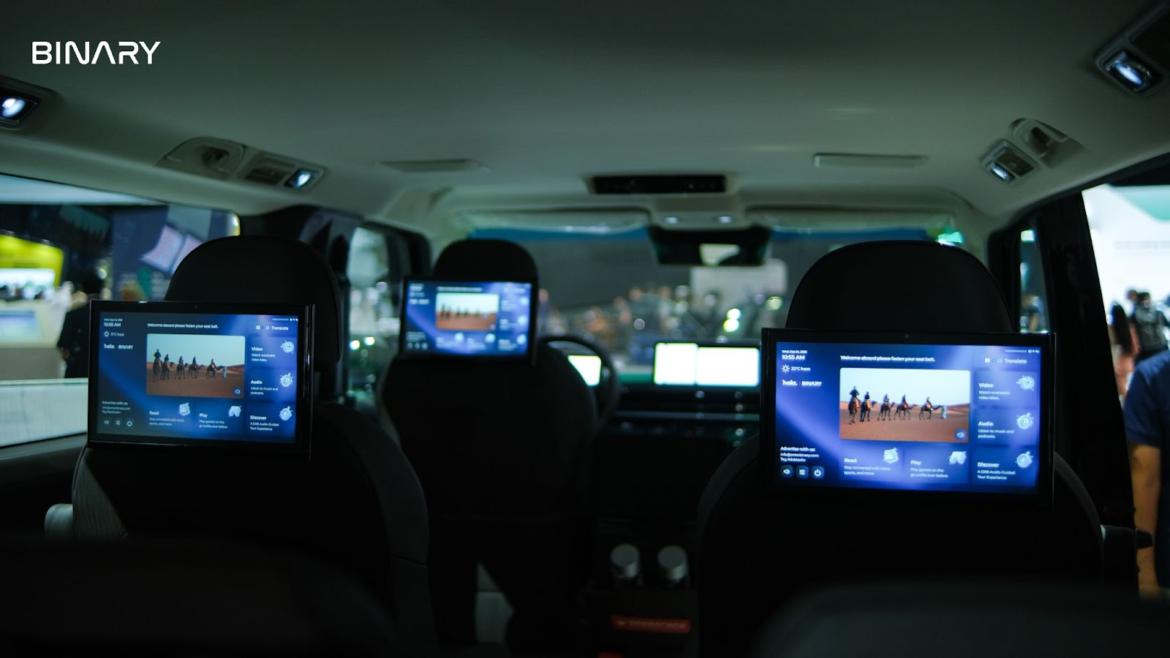Dubai, UAE — At the Dubai World Congress for Self-Driving Transport, Binary showcased its passenger OS running live on an autonomous vehicle. Designed as the operating system for passenger time, the OS was paired with purpose-built hardware—together called Binary TV.
With Binary onboard, passengers can see and share their trip, send turn-by-turn navigation to the driver, use in-ride voice translation (20+ languages), and request assistance. They can also watch videos, listen to music and podcasts, play quick games, and explore audio tours—all from a screen-native, touch-first interface.
“As LiDAR, radar, sensors, AI, and cameras converge, differentiation shifts from mobility to experience. Mobility will not be the product; experience will, and it will decide who wins,” said Santosh Sarma, Co-Founder & CEO of Binary. “Our proprietary passenger OS turns idle ride time into useful time with utilities, information, entertainment, safety, and services—similar to best-in-class in-flight entertainment—inside the car.”
Why this matters:
Intel predicts a fast-emerging Passenger Economy of about $7 trillion by 2050, including $200 billion from new in-ride applications and services—the layer Binary is building for. Binary already operates at scale in the UAE, with 2,000+ taxis reaching millions of passengers each month, proving that a passenger-first OS can be deployed, updated, monetized, and measured like any modern platform.
For fleet operators, Binary delivers new revenue lines, enhanced passenger experience, and built-in feedback systems on a platform designed to integrate with most taxi dispatch and rideshare app ecosystems.
Media contact: info@enterbinary.com
About Binary
Binary operates the UAE’s largest network of connected in-taxi screens. Powered by its proprietary passenger OS, Binary blends content, targeted advertising, and passenger-focused utilities, reaching millions of riders every month.



